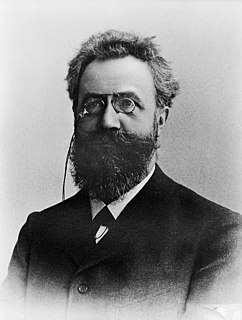A Quote by Arthur Schopenhauer
The poet presents the imagination with images from life and human characters and situations, sets them all in motion and leaves itto the beholder to let these images take his thoughts as far as his mental powers will permit. This is why he is able to engage men of the most differing capabilities, indeed fools and sages together. The philosopher, on the other hand, presents not life itself but the finished thoughts which he has abstracted from it and then demands that the reader should think precisely as, and precisely as far as, he himself thinks. That is why his public is so small.
Quote Topics
Able
As Far As
Beholder
Capabilities
Characters
Demands
Engage
Far
Finished
Fools
Hand
Himself
His
Human
Images
Imagination
Indeed
Itself
Leaves
Life
Men
Mental
Mental Power
Most
Motion
Other
Permit
Philosopher
Poet
Powers
Precisely
Presents
Public
Reader
Sets
Should
Situations
Small
Take
Them
Then
Think
Thinks
Thoughts
Together
Which
Why
Will
Related Quotes
It has been observed before that images, however beautiful, though faithfully copied from nature, and as accurately represented in words, do not of themselves characterize the poet. They become proofs of original genius only as far as they are modified by a predominant passion; or by associated thoughts or images awakened by that passion; or when they have the effect of reducing multitude to unity, or succession to an instant; or lastly, when a human and intellectual life is transferred to them from the poet's spirit.
It is one of those problems of human nature, which may be noted down, but not solved; - although Ralph felt no remorse at that moment for his conduct towards the innocent, true-hearted girl; although his libertine clients had done precisely what he had expected, precisely what he most wished, and precisely what would tend most to his advantage, still he hated them for doing it, from the very bottom of his soul.
Watching a scene from a film in slow motion is possible, but there’s an unreal air to it; reading a passage from a book slowly does nothing to rob the words of their power. A film presents images; a book creates images inside the reader, with the reader’s active participation. Books are good for your brain.
Only a great man, believe me, and one whose excellence rises far above human failings, will not allow anything to be stolen from his own span of time, and his life is very long precisely because he has devoted to himself entirely any time that became available. None of it lay uncultivated and idle, none was under another man's control, for guarding it most jealously, he found nothing worth exchanging for his own precious time.
The more closely the author thinks of why he wrote, the more he comes to regard his imagination as a kind of self-generating cement which glued his facts together, and his emotions as a kind of dark and obscure designer of those facts. Reluctantly, he comes to the conclusion that to account for his book is to account for his life.
In societies where modern conditions of productions prevail, all of life presents itself as an immense accumulation of spectacles. Everything that was directly lived has moved away into representation. The images detached from every aspect of life fuse in a common stream in which the unity of this life can no longer be re-established. Reality considered partially unfolds, in its own general unity as a pseudo-world apart, an object of mere contemplation . . . The spectacle is not a collection of images, but a social relation among people, mediated by images.
What a wee little part of a person's life are his acts and his words! His real life is led in his head, and is known to none but himself. All day long, the mill of his brain is grinding, and his thoughts, not those of other things, are his history. These are his life, and they are not written. Everyday would make a whole book of 80,000 words -- 365 books a year. Biographies are but the clothes and buttons of the man -- the biography of the man himself cannot be written.
Once a man recognizes himself as a being surrounded by other beings in this world and begins to respect his life and take it to the highest value, he becomes a thinking being. Then he values other lives and experiences them as part of his own life. With that, his goal is to help everyone take their life to the highest value; anything which limits or destroys a life is evil. That is morality. That is how men are related to the world around them.
The great problems of life — sexuality, of course, among others — are always related to the primordial images of the collective unconscious. These images are really balancing or compensating factors which correspond with the problems life presents in actuality. This is not to be marveled at, since these images are deposits representing the accumulated experience of thousands of years of struggle for adaptation and existence.
I am myself a professional creator of images, a film-maker. And then there are the images made by the artists I collect, and I have noticed that the images I create are not so very different from theirs. Such images seem to suggest how I feel about being here, on this planet. And maybe that is why it is so exciting to live with images created by other people, images that either conflict with one's own or demonstrate similarities to them.








































